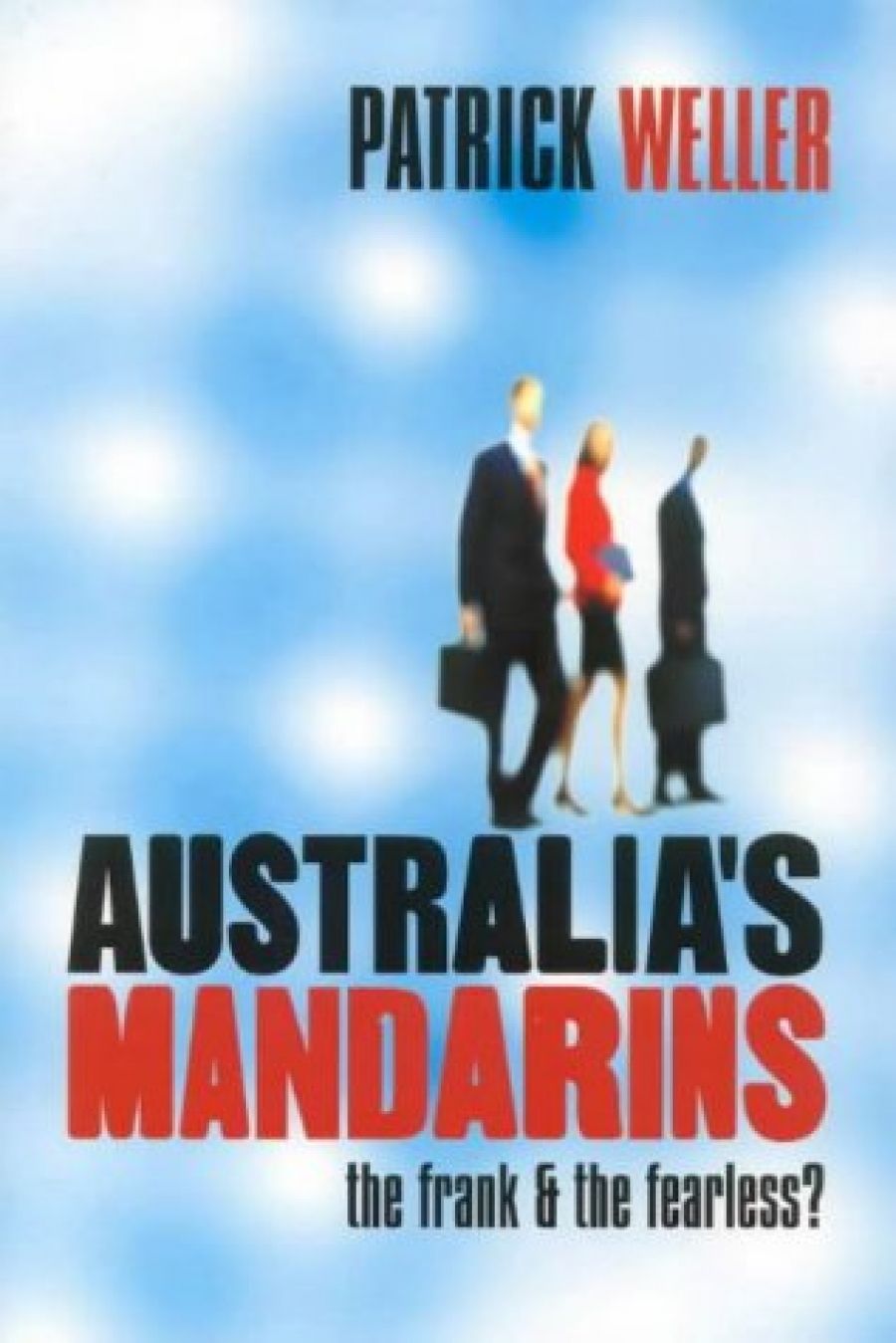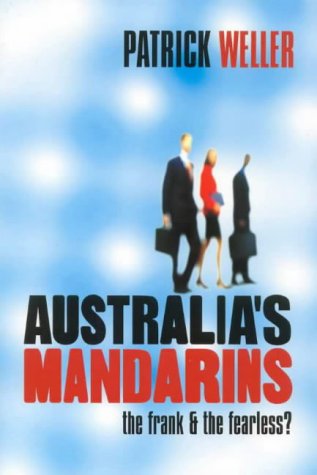
- Free Article: No
- Contents Category: Politics
- Review Article: Yes
- Article Title: Perhaps, Minister?
- Online Only: No
- Custom Highlight Text:
On May 24 this year, a memorial service was held in the Great Hall of Parliament House. The great and the good were there in force. They were marking the death of Sir Arthur Tange, widely regarded as the last of the great public service mandarins who flourished from the 1940s to the 1970s. Although the usual partisan conflicts were temporarily suspended, an element of controversy intruded. In his eulogy, Malcolm Fraser lamented that changes to the public service meant that ministers today and tomorrow would not have the benefit of the frank, fearless, non-partisan ad-vice of the kind that he had received from Tange. The next eulogist, Alexander Downer, felt compelled to give an unscripted response, asserting that he and his ministerial colleagues did indeed receive advice of comparable quality and independence from their departmental secretaries. The third eulogist wisely stayed clear of the debate, although his views would have been highly relevant, for Dr Allan Hawke occupies the last position held by Tange, that of Secretary of the Department of Defence.
- Book 1 Title: Australia's Mandarins
- Book 1 Subtitle: The Frank and the Fearless?
- Book 1 Biblio: Allen & Unwin, $29.95 pb, 263 pp
- Book 1 Cover Small (400 x 600):

The culmination of the process came in 1999, when Paul Barratt was summarily sacked as Secretary of the Department of Defence. His attempts to challenge the process served only to emphasise the weakness of the position of a depart-mental secretary at the end of the twentieth century. By judicial finding, a government can henceforth justify the sack-ing of a departmental secretary simply by stating that he or she has lost the confidence of his minister. The question raised by many commentators, even before the Barratt case, was whether departmental secretaries, supposedly the principal source of official advice to ministers, would be ‘frank and fearless’ in offering this advice when their careers could be so abruptly terminated. In the 1970s, observers wondered whether secretaries, ‘permanent heads’ in both title and reality, had too much power over their ministers. Now the pendulum has swung the other way. The question is whether departmental secretaries are too dependent on the political and personal whims of the ministers.
Patrick Weller has a record of publishing extensively on the operations of government. In addition to a study of Malcolm Fraser’s prime ministerial management and a biography of John Button, his previous books include Can Ministers Cope?, co-authored with Michelle Grattan. This book might almost be entitled Can Departmental Secretaries Cope? – cope, that is, with the major changes in both their status and the demands placed upon them. It relies heavily on interviews with departmental secretaries, many conducted specifically for this book within the last three years.
The book provides a good deal of information for political scientists and others interested in this issue, with analysis of changes in the legal and political framework, the nature of those appointed as departmental secretaries, and their career structure and prospects. Weller makes a number of relevant points about these changes, which give a context to the rival contentions of Fraser and Downer at the Tange service. The penultimate chapter is a case study of the Barratt sacking, with a useful account of its political and legal ramifications.
But the book falls short of being a reliable history of the issue over the past half-century, as it claims to be. A surprising number of misspelt names – two on page one – and other minor errors sap confidence. Weller does not seem to have as much feel for the way the system operated before, say, 1975 as he does for the last quarter of the twentieth century. The structure of the book is awkward, drawing heavily on previously published papers, which leads to excessive repetition. The quotations from departmental secretaries are offered verbatim and without care for the implied punctuation, which sometimes does less than justice to their arguments.
The heavy reliance on these quotations means that the book is partial. By its end, a reader will know how people like Tony Ayers, Tony Blunn, Mike Codd, Allan Hawke and Michael Keating think about their positions, but what do their ministers think? And what of those public servants at the levels immediately below the secretaries, from whom their successors will be chosen? Are they eager to follow in the footsteps of their bosses, or are they more likely to seek more lucrative and less exposed openings for their managerial talents in the private sector?
The book reads as if it were rushed into publication, in time for the centenary celebrations of the Australian Public Service in June. It contributes substantially to the debate, but it leaves the way open for a more considered assessment.


Comments powered by CComment